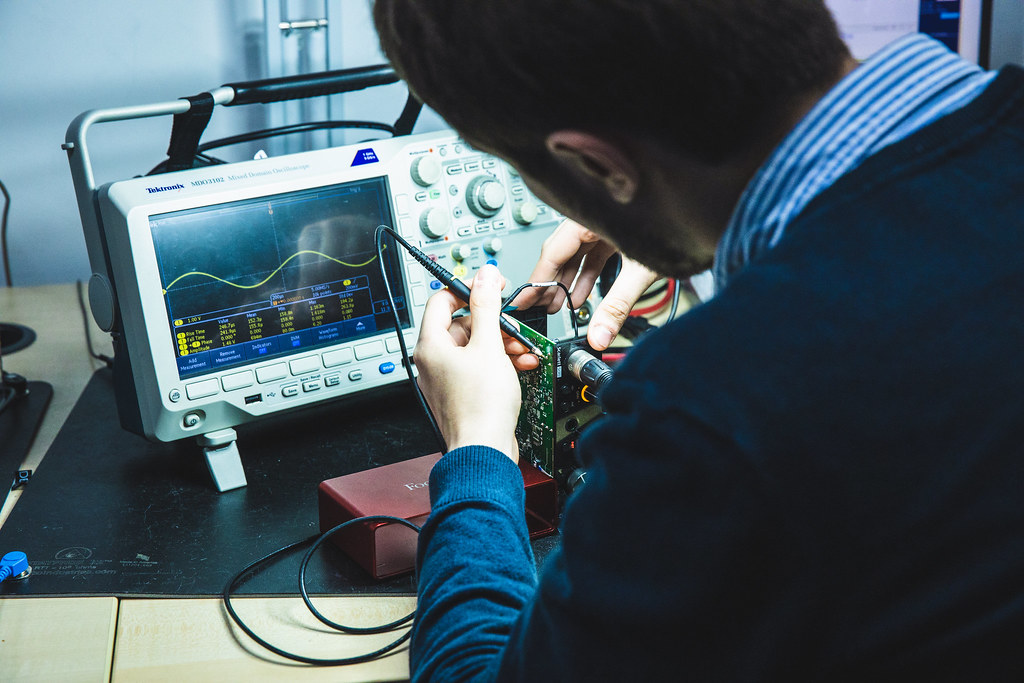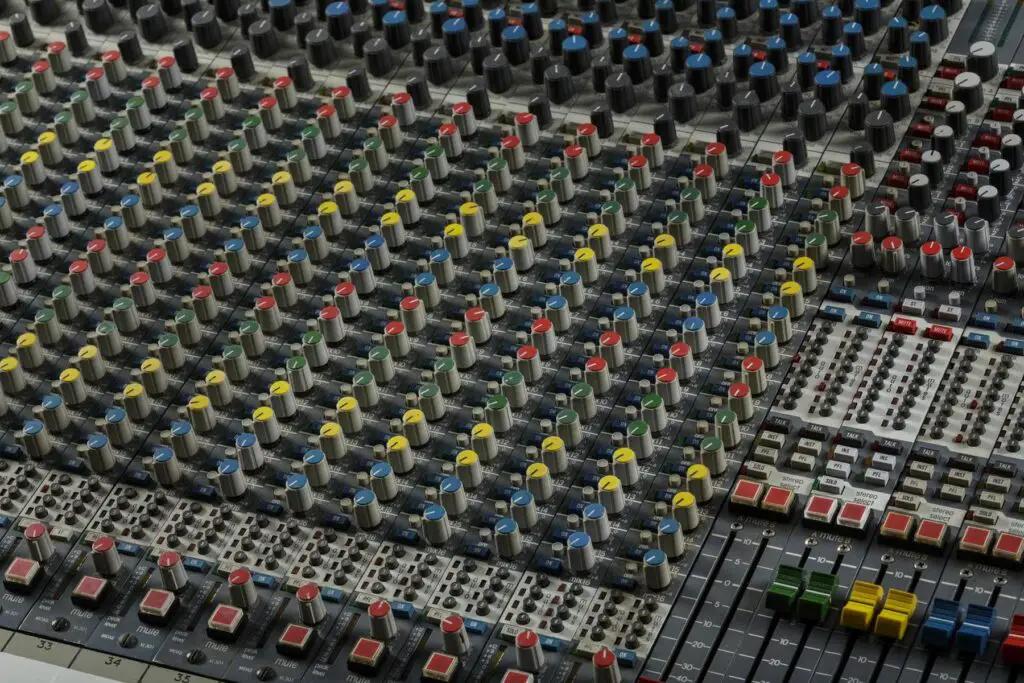
Table of Contents
Benefits of Attending College for Music Production and Audio Engineering
When it comes to pursuing a career in music production and audio engineering, attending college offers numerous benefits. One of the primary advantages is the opportunity to learn from experienced professionals who can help you develop the skills you need to succeed in these fields. Through hands-on training and access to state-of-the-art equipment, you can gain practical knowledge that is difficult to acquire elsewhere.
Moreover, earning a degree in music production and audio engineering can give you a competitive edge in the job market. Many employers prefer candidates who have a degree or formal training in these areas. This is because having a degree demonstrates that you have acquired a certain level of technical and theoretical knowledge in the field. Additionally, attending college provides opportunities for networking with industry professionals, which can lead to internships, job offers, and other career opportunities.
Overall, attending college for music production and audio engineering can provide you with the skills, knowledge, and experiences necessary to succeed in the industry and make a meaningful impact in the field.

Best Colleges and Universities for Music Production and Audio Engineering
If you are looking to pursue a degree in music production and audio engineering, there are several top-notch colleges and universities that offer programs or degrees in this field. Here are some of the best schools to consider:
-
Berklee College of Music: Located in Boston, Massachusetts, Berklee College of Music is one of the most prestigious schools for music production and audio engineering. The college offers a range of undergraduate and graduate programs in music production and engineering, including a Bachelor of Music in Music Production and Engineering, a Master of Music in Music Production, Technology, and Innovation, and a Master of Music in Music Production and Engineering.
-
Full Sail University: Full Sail University, located in Winter Park, Florida, is another top school for music production and audio engineering. The university offers a range of programs, including a Bachelor of Science in Audio Production, a Bachelor of Science in Music Production, and a Master of Fine Arts in Media Design, among others.
-
New York University (NYU): NYU is a highly regarded university that offers a Bachelor of Music in Music Technology, which focuses on music production, audio engineering, and sound design. The university also offers a Master of Arts in Music Technology program.
-
University of Southern California (USC): USC offers a Bachelor of Music in Popular Music Performance with a Music Technology Emphasis. This program includes courses in music production, audio engineering, and music business. USC also offers a Master of Music in Music Technology program.
-
The Los Angeles Film School: The Los Angeles Film School offers a Bachelor of Science in Audio Production program that covers music production, audio engineering, and post-production sound.
-
University of Miami: Located in Florida, the University of Miami offers a Bachelor of Music in Music Engineering Technology program, which focuses on music production, audio engineering, and technology. The university also offers a Master of Music in Music Engineering Technology program.
-
The Art Institutes: The Art Institutes is a system of schools that offers a range of programs in music production, audio engineering, and sound design. Some of the programs offered include a Bachelor of Science in Audio Production, a Bachelor of Science in Music Production, and a Bachelor of Science in Audio & Sound Design.
-
SAE Institute: SAE Institute is a global network of schools that offers programs in audio engineering, music production, and sound design. Some of the programs offered include a Bachelor of Science in Audio Production, an Associate of Applied Science in Audio Technology, and a Diploma in Audio Engineering.
-
Musicians Institute: Located in Hollywood, California, Musicians Institute offers a range of programs in music production and audio engineering. Some of the programs offered include a Bachelor of Music in Music Production, an Associate of Arts in Music Production, and a Certificate in Music Production.
-
Belmont University: Belmont University is located in Nashville, Tennessee, and offers a Bachelor of Science in Audio Engineering Technology program. This program covers music production, audio engineering, and recording arts.
These schools have a strong reputation for providing high-quality education in music production and audio engineering. When choosing a school, consider factors such as program offerings, faculty, facilities, and location to find the best fit for your career goals.

Music Technology Programs Offered
If you’re interested in pursuing a career in music production and audio engineering, a music technology program can provide you with the necessary skills and knowledge. These top colleges and universities offer a wide range of music technology programs, including:
- Bachelor of Science in Music Production and Engineering: This program provides students with a comprehensive understanding of music production and engineering, including music theory, audio mixing, and sound design. Graduates will possess the skills necessary to work in various areas of the music industry, including producing, engineering, and mixing music.
- Bachelor of Arts in Music Technology: This program is designed to provide students with a solid foundation in music technology, including digital audio workstations (DAWs), computer music, and sound design. Graduates will be equipped with the skills necessary to work in various areas of the music industry, including music production, broadcasting, and sound design.
- Master of Music in Music Technology: This program is designed for students who wish to further their knowledge and skills in music technology. Students will learn about topics such as computer music, music notation software, and advanced sound design. Graduates will be prepared for careers in music production, sound design, and academia.
- Associate of Science in Audio Production: This program provides students with a basic understanding of audio production, including music theory, recording techniques, and audio mixing. Graduates will be equipped with the skills necessary to work in various areas of the music industry, including music production, broadcasting, and sound design.
In these programs, you’ll have the opportunity to work with industry-standard equipment and software, which will help you develop the skills you need to succeed in the field. You’ll also learn from experienced faculty members who have worked in the music industry themselves. With a music technology degree, you’ll be prepared to pursue a career in music production, audio engineering, sound design, and more.

Cost of Tuition and Financial Aid
College tuition can be a significant expense, especially for students pursuing a degree in music production and audio engineering. However, many of the schools on this list offer financial aid and scholarships to help offset the cost of tuition. It’s important to research the different financial aid options available and apply for any that may be applicable to you.
The cost of tuition varies depending on the school and the program you enroll in. For example, the cost of tuition for a four-year bachelor’s degree program in music production and audio engineering at Berklee College of Music is approximately $170,000, while the cost for a similar program at Full Sail University is approximately $85,000. It’s important to consider the cost of living in the area as well, as this can also impact the overall cost of attending college.
Investing in your education can pay off in the long run, as it can lead to higher-paying job opportunities in the music industry. Additionally, many of these schools have established connections with industry professionals, which can provide valuable networking opportunities for students.
To help ease the financial burden of attending college, it’s important to explore all available financial aid options and apply for scholarships whenever possible. Many schools offer need-based financial aid, merit-based scholarships, and other forms of financial assistance. It’s important to research all of these options and apply for any that may be applicable to you.
Overall, while the cost of tuition can be a significant expense, it’s important to remember the long-term benefits of investing in your education and pursuing a degree in music production and audio engineering.

Recording Engineering Degrees Offered
Recording engineering is a specialized field that requires advanced technical skills and knowledge in music production and audio engineering. Many of the top colleges and universities that offer music production and audio engineering programs also provide degrees specifically in recording engineering.
These programs are designed to equip students with the technical skills required for recording and mixing music. Students learn about different recording techniques, studio equipment, and software tools that are used in the industry. They also learn about sound design, signal processing, and audio editing.
Some of the top colleges and universities that offer recording engineering degrees include Full Sail University, Berklee College of Music, and New York University. These programs are taught by experienced professionals who have worked in the music industry, and they provide hands-on training opportunities that allow students to apply what they have learned in real-world settings.
By pursuing a degree in recording engineering, students can increase their employability in the music industry and gain a competitive edge in the job market. It is an excellent choice for those who are passionate about music production and audio engineering and want to take their skills to the next level.

Sound Design Universities
For those interested in sound design, this list includes several universities that offer programs or degrees in this particular area of music production and audio engineering. Sound design is a crucial aspect of the industry and entails the creation and manipulation of sounds to enhance the overall listening experience. These universities are equipped with the resources and facilities to help students develop their skills in sound design.
Some of the universities on this list that offer sound design programs or degrees include:
| University Name | Program Offered |
|---|---|
| University of Michigan | Bachelor of Fine Arts in Sound Design |
| Savannah College of Art and Design | BFA in Sound Design |
| University of Southern California | Bachelor of Music in Screen Scoring with a minor in Sound Design |
| Berklee College of Music | Bachelor’s in Music Production and Engineering with a concentration in Contemporary Writing and Production or Electronic Production and Design |
| Full Sail University | Bachelor’s in Recording Arts with a concentration in Game Audio or Show Production |
| The New School | Bachelor’s in Design and Technology with a concentration in Sound |
| Columbia College Chicago | Bachelor’s in Music Composition for the Screen with a concentration in Scoring for Visual Media |
These universities offer students the opportunity to learn from experienced professionals, work with state-of-the-art equipment, and collaborate with peers to develop their skills in sound design. Students will have the chance to work on real-world projects and gain hands-on experience through internships and other opportunities.

Opportunities for Hands-On Experience and Internships
Studying music production and audio engineering in college provides students with the opportunity to gain practical, hands-on experience and participate in internships. Top colleges and universities have partnerships with recording studios, music labels, and other industry organizations, which offer students real-world experience and exposure to the music industry.
Through these internships, students can develop industry-specific skills, build their professional network, and gain insights into the music production and audio engineering industry. The experience gained through internships can also increase a student’s chances of finding employment after graduation.
For instance, the Los Angeles Recording School’s audio engineering program provides students with the opportunity to participate in an internship program with the Recording Connection Audio Institute. The program allows students to work with industry professionals and gain hands-on experience in recording studios, production houses, and other music-related organizations.
Similarly, at Full Sail University, students can participate in an internship program that provides practical experience in music production, audio engineering, and live sound. The school’s partnerships with organizations like Live Nation and Universal Music Group offer students the opportunity to work with industry experts and gain invaluable knowledge and experience.
In conclusion, internships and hands-on experience are essential components of a music production and audio engineering education. They offer students the opportunity to gain practical experience, develop industry-specific skills, and build their professional network.

Emerging Technologies in Music Production and Audio Engineering
As technology continues to evolve, the music production and audio engineering industry is constantly adapting to new tools and trends. Here are some emerging technologies that are shaping the future of music production and audio engineering:
Virtual Reality (VR)
Virtual reality technology is changing the way we experience music and sound. With VR, users can immerse themselves in a 3D audio environment, making it possible to experience music in a whole new way. VR technology is also being used in live music performances and installations, providing a unique and interactive experience for the audience. For instance, the VR headset “Oculus Rift” has become a popular tool among music video producers who are looking to create immersive 360-degree music videos.
Artificial Intelligence (AI)
AI is playing an increasingly important role in music production and audio engineering. AI-powered tools can analyze and process audio data, making it easier to identify and correct errors in recordings. AI is also being used to create new sounds and music, with some AI-generated compositions even making their way onto popular streaming platforms. For example, AI-powered software “Amper Music” is a music composition software that creates original music based on user preferences.
Cloud Collaboration
Cloud-based collaboration tools are making it easier than ever for music producers and audio engineers to work together, regardless of their physical location. With cloud collaboration tools, musicians and engineers can share files, collaborate on projects, and provide feedback in real-time, without the need for physical studio space. For example, “Splice” is a cloud-based music collaboration platform that allows musicians and producers to collaborate on projects and share audio files in real-time.
As these and other emerging technologies continue to gain prominence in the music production and audio engineering industry, it’s important for aspiring professionals to stay up-to-date on the latest trends and developments. By embracing new technologies and tools, professionals in this field can stay ahead of the curve and continue to create groundbreaking and innovative work.

Reviews and Testimonials from Students
Current and former students are the best judges of the quality of education a college or university provides. Here are some testimonials from the students of the top colleges and universities that offer programs or degrees in music production and audio engineering:
Berklee College of Music
John, a Berklee College of Music graduate, said, “Attending Berklee College of Music was the best decision I ever made. The faculty is incredibly knowledgeable, and the facilities are top-notch.”
Full Sail University
Sarah, a Full Sail University graduate, said, “Full Sail University provided me with the hands-on experience I needed to succeed in the music industry. I landed my dream job thanks to the skills I learned there.”
New York University
Mike, an NYU graduate, said, “The faculty at NYU is incredibly supportive and encouraging. They helped me develop my skills and gave me the confidence I needed to pursue my career in music production.”
These student reviews and testimonials give valuable insights into the quality of education provided by the colleges and universities for music production and audio engineering. The experiences shared by these students can help prospective students make informed decisions about where to pursue their degrees in this field.
Conclusion
In conclusion, pursuing a degree in music production and audio engineering is an excellent way to acquire the skills and knowledge needed to succeed in the music industry. The colleges and universities listed in this article provide some of the best programs and degrees in music production, audio engineering, recording engineering, and sound design. By attending one of these top schools, you can gain hands-on experience, valuable knowledge, and industry connections that can propel your career forward.
We encourage you to explore our other content to learn more about the music production and audio engineering industry. Whether you’re interested in tips for starting a career in the field or want to stay up-to-date on the latest industry trends, our website has a wealth of information to help you succeed. Start by checking out our other articles and resources on music production and audio engineering.


